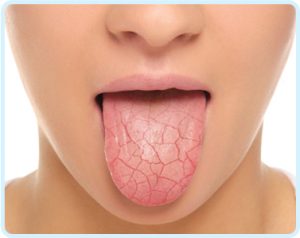In Australia, we have a widespread drinking culture. Whether it’s with a game of footy or kicking back after a long work week, us Aussies enjoy a good drink. But what is alcohol’s effect on our dental health?

Bad News First
Dry Mouth
High alcohol consumption limits saliva production, causing dry mouth. When there isn’t enough saliva in your mouth, it creates the perfect environment for the promotion of anaerobic oral bacteria. Saliva is also needed to neutralise the acids produced by plaque and wash away any dead cells that accumulate in your mouth. If these are not removed, they will decompose in your mouth.
Most alcoholic drinks contain a lot of sugar and are very acidic. So sugar and acid, combined with a dry mouth that doesn’t neutralise those acids or wash those sugars away, will quickly lead to extensive tooth decay and gum disease.

Staining and Bad Breath
As a result of dry mouth, when the accumulated oral dead cells are not washed away by saliva, they decompose in your mouth, causing halitosis (i.e. bad breath).
Chromogens colour most alcoholic beverages. Unfortunately, they’re terrible for your teeth. They attach to tooth enamel after the acid in the alcohol has weakened the enamel, and they will permanently stain and discolour your teeth. One way to avoid this would be drinking through a straw. You can also treat your teeth by teeth whitening but if you make a habit of excessively drinking alcohol, chemical whitening will not help and probably damage your teeth structure further.

Cancer and Other Issues
Unfortunately, excessive alcohol consumption has been scientifically proven to heighten your risk of contracting oral (and other) cancers, cardiovascular disease, liver cirrhosis and trauma. In fact, alcohol drinkers are six times more likely to contract oral cancer than non-drinkers.
These health issues are primarily due to the fact that alcohol is absorbed from the stomach into the blood stream, affecting your central nervous system. It’s a chemical depressant and loosens one’s inhibitions, often giving rise to violent or irrational behaviour when you’re intoxicated.

Not All Doom and Gloom
All hope is not lost. There are some things you can implement in your routine that can help combat the issues listed above.
Consistent Oral Hygiene
It goes without saying that a good, consistent routine of brushing twice a day and flossing daily go a long way to maintaining a healthy mouth. However, a big proviso is in order: don’t brush straight after consuming alcohol.
The acid of the alcohol weakens your tooth enamel. If you brush your teeth after it’s been weakened, you’ll strip away the outer layer of your teeth, making them more sensitive and susceptible to decay. Rinse your mouth with water and wait half an hour before brushing and flossing your teeth after drinking.

Water, Water, Water!
The umbrella solution is to drink more water. Scale back your alcohol consumption to control your halitosis if you are drinking excessively. The hydration helps restore some saliva production in your mouth. It also dilutes alcohol’s effect on your central nervous system and regulates how much alcohol you can drink in a short amount of time.

Good Drinks
The antioxidants in red wine have been shown to be beneficial to your cardiovascular health. And moderate alcohol consumption (up to two standard drinks per day) can actually reduce the risk of heart disease and stroke.
But always bear in mind that binge drinking (more than five standard drinks in one session) seriously increases the harmful effects of alcohol. Cancer risk always increases when alcohol consumption increases.

